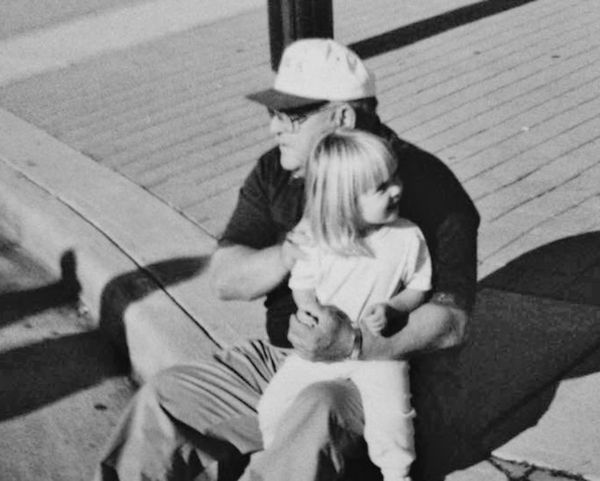The Cancer Treatment Centers of America website says that pancreatic cancer is “an aggressive form of cancer that develops in the tissues of the pancreas.” The pancreas aids in digestion and is located in the abdomen. It contains the exocrine and endocrine glands. The exocrine gland helps to produce enzymes that digest food while the endocrine gland contains hormones and insulin that control blood sugar levels.
Along with pancreatic cancer comes a survival rate of only 7% - 20%. When diagnosed, you can have 1-5 years to live.
My grandfather was one of that cancer’s victims.
Growing up, I was told of Babu’s many feats and successes. We called him Babu, because it means grandfather in Swahili. My grandfather grew up in Africa, as his parents were missionaries. Even after he came to the United States, my grandfather had a love for Africa instilled in him. He shared stories of his childhood, one surrounded in poverty, and how he overcame the struggles of life. He wrote books about his life in Africa and what he saw there.
In the final days of my grandfather’s life, cancer took his strong body. His shoulders sagged and his skin stretched in starvation. His eyes were hollow and he had a hard time remembering. He seldom ate. “I don’t want you to see me like this,” he told his grandchildren. He didn’t want our last memory of him to be weakness.
Babu, you were never weak and I will never think you were.
Cancer took my grandfather’s life and also took some of our happiness and joyfulness along with it. Some nights were spent mourning, but my Babu’s funeral was to be a time for celebration of his life.
We buried him in a quiet cemetery. I remember visiting one evening with my parents, brother, and sister, and seeing bird walking freely along my Babu’s grave. “He would have loved that,” my father told me. I knew he would have.
Memories of my Babu’s love for birds stays with me forever. He had books on birds littering the house when he came to visit. I loved to look through the colorful pages, scouting the air for birds as my grandfather had done.
There is one memory I keep closest to me of my Babu. It was late and everyone was off to bed. A thunderstorm brewed outside and lightning filled the house. I was just about to go to the basement to head to sleep when I spotted my grandfather outside, standing by the fence in our yard, staring out at the lake and at the storm.
I ran out into the yard, my feet bare and my hair becoming wet with warm rain. “What are you doing out here?” I asked. I was young, but I’m not sure how old I was. I knew my Babu loved storms, and he gave me the love for them that night. He showed me how to count after each flash of lightning so that we would know just how far away the thunder was. We took turns counting, not caring that rainwater was dripping down our faces.
When the storm was right over us, I went back inside. My Babu continued to stand in the storm, staring out across the lake and smiling happily. I remember the way the lightning flashed and my Babu’s outline shone in the dark night. I wonder what he was thinking, that strong man standing in the middle of a storm, unafraid.
I learned to appreciate nature because of my Babu.
I learned to love animals, both big and small. I learned to take the time to look up at the stars and remember how beautiful it is that we get to look at it and how it was made just for us.
I also learned to appreciate the small things. While my parents were away on vacation, my Babu ate the Shredded Mini Wheats my grandmother, Nana, had brought along for him. I learned to love the little wheat squares and my grandfather and I ate them almost every morning. “I never really liked Mini Wheats,” he told me one day when I was older and the cancer was taking his body. He winked at me.
He loved his wife. He strived to make her happy. He loved his grandchildren. He gave us money for eating our fruits and vegetables. He walked around the house in jeans and button-up shirts, quietly, but he made me feel safe. He didn’t speak much, but when he did, he spoke with wisdom and strength.
I hated cancer for taking someone so beautiful. How does cancer take its victims? It seems to destroy the most wonderful things, take the most breathtaking people.
There is something it cannot take, however. It cannot take the memories. It cannot destroy the photographs we have taken or the success and fight that someone had during life.
Cancer will not be the last memory I have of my grandfather. It cannot take his strength.





 mr and mrs potato head
StableDiffusion
mr and mrs potato head
StableDiffusion


















